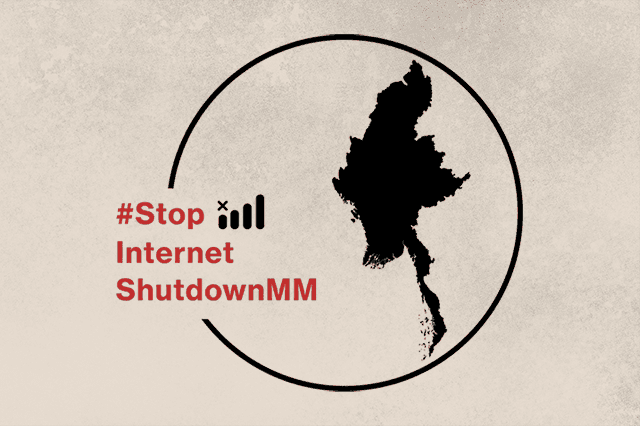MDRF calls for the end of the 2G digital blackout

The partners of the Myanmar Digital Rights Forum including MCRB have issued a joint statement calling on the Myanmar Government to restore 3G and 4G internet services in seven townships of Rakhine State, and Paletwa, Chin State, and refrain from shutting down internet and bandwidth restrictions in the future, either currently affected areas or elsewhere in Myanmar, particularly at a time of the COVID pandemic and ongoing conflict, and during the election campaigns.
On 30 July 2020, the Myanmar Ministry of Transport and Communications (MoTC) directed all mobile phone operators in Myanmar to continue to suspend 3G and 4G services in seven townships of Rakhine and one township in Chin State. The restrictions on 3G and 4G services will last at least until 31 October 2020, one week before Myanmar’s elections.
Access to 2G is not access to the internet. On 15 August, 30 Rakhine civil society groups issued a statement highlighting the current communication challenges they face with only 2G services, which are inadequate to access the internet, send emails or messages or browse websites and social media. The Myanmar media has reported the challenges to the election process if election observation organisations and the local population lack internet, as well as wider enjoyment of human rights.
Rakhine has recently become Myanmar’s COVID hotspot, and its population is in need of accurate online information to combat this. Initial research recently conducted by Asia Foundation and SaferWorld on the impacts of COVID in conflict zones found that COVID health interventions have been more successful in Southeastern parts of the country than in other conflict-affected areas such as Shan and Kachin States, and that efforts undertaken in Rakhine State appear not to have had any impact at all.
The MDRF statement also reiterates the call in earlier statements to review the Articles 77 and 78 of the 2013 Telecommunication Law to bring them in line with international human rights standards. These and other inadequacies of the law were identified in MCRB’s ICT Sector-Wide Impact Assessment (SWIA). MCRB has called for collective action to reform the articles of the Law which do not meet international human rights standards which respect freedom of expression and privacy.
MCRB notes the recognition of uninterrupted access to the internet as essential for human rights is widely accepted internationally and that the UN Human Rights Council maintained a consensus in 2018 on the Resolution on The promotion, protection and enjoyment of human rights on the Internet. MCRB therefore encourages the UN and governments, and in particular the 30 governments who are members of the Freedom Online Coalition to make good on the commitments they agreed upon in their 2017 Joint Statement on State-Sponsored Network Disruptions and accompanying good practices and encourage the government of Myanmar to lift restrictions on 3G/4G.
Read also
- Myanmar Sustainable Business Network provides input to UN Global Digital Compact consultations
- Joint Statement on Mobile Internet Shutdown in Myanmar
- End The World’s Longest Internet Shutdown – Now Entering Its Second Year
- MCRB Joins Call to Lift Internet Shutdown and End Website Blocking that Fails the ‘Three Part Test’
- Imagine Spending a Day Without Data!
 English
English မြန်မာ
မြန်မာ မြန်မာ (unicode)
မြန်မာ (unicode)










